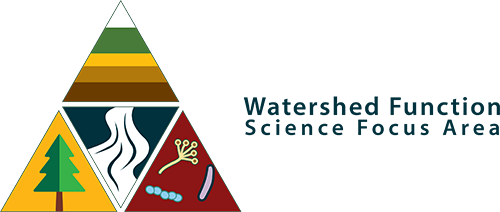
Fadji Zaouna Maina (Berkeley Lab) is among Forbes Magazine’s 30 Under 30 list of “revolutionaries changing the course—and the face—of business and society.” Maina, included in the science category, uses computational models to better understand how climate change and pollution affect water availability. Read more »
To learn more about some of Fadji Maina’s research, watch and read Fadji’s pitch on “Sustainable Water for an Uncertain Future” (from the Berkeley Lab “Research SLAM”).



 Carl Steefel, a senior scientist in the Earth & Environmental Sciences Area at Berkeley Lab and a component lead of the Watershed Function SFA, has been named by the American Geophysical Union (AGU) as a 2019 AGU Fellow.
Carl Steefel, a senior scientist in the Earth & Environmental Sciences Area at Berkeley Lab and a component lead of the Watershed Function SFA, has been named by the American Geophysical Union (AGU) as a 2019 AGU Fellow. Reed Maxwell, Rowlinson Professor of Hydrology at Colorado School of Mines and a component lead of the Watershed Function SFA, has been named by the American Geophysical Union (AGU) as a 2019 AGU Fellow.
Reed Maxwell, Rowlinson Professor of Hydrology at Colorado School of Mines and a component lead of the Watershed Function SFA, has been named by the American Geophysical Union (AGU) as a 2019 AGU Fellow.